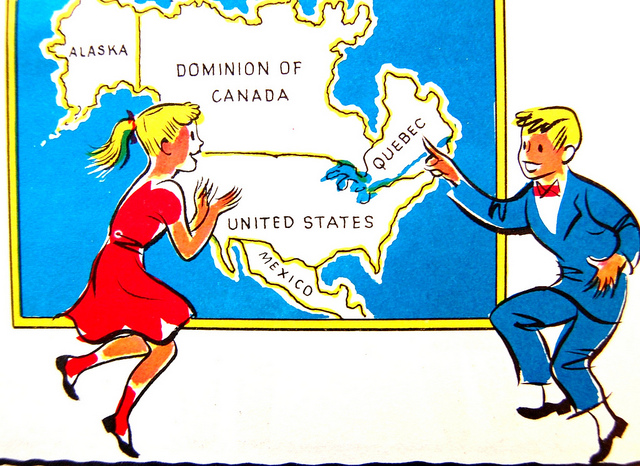Anglophone Quebecers are feeling far less secure about their future in the province under the Coalition Avenir Québec government, a new poll suggests.
Nine months after the CAQ was voted into power, the vast majority of respondents to a Forum Research survey conducted in late July said they’re more worried about their rights as English-speaking citizens than they were two years ago. They also feel the government is doing a worse job of protecting their rights, and of attracting and retaining English-speaking people to the province. Most feel services for anglophones in Quebec have declined.
Asked whether they were “more worried or less worried about your rights as an English-speaking citizen of Quebec than you were two years ago,” 81 per cent said they were “more worried.” Just over half of the respondents said they were “much more worried.”
“Anglophones are concerned about their place in Quebec right now,” said Lorne Bozinoff, president of Forum Research. “They feel much less secure than they did two years ago. How the government approaches this challenge will be interesting to watch, as they have a very strong base of support amongst francophones.”
The CAQ government swept into power in the Oct. 1 election after 15 years of nearly uninterrupted Liberal rule, buoyed largely by the francophone majority outside of the Montreal region. The Liberals’ main base of support remained in and around Montreal, where most of the anglophone population is based.
Since the vote, Premier François Legault’s government has embarked on a series of measures that have been vastly unpopular among English residents. They include unilaterally transferring English-language schools to French school boards,removing English signs from a Lachute hospital and imposing the secularism legislation known as Bill 21, which restricts civil servants including police officers and school teachers from wearing religious symbols on the job — a law that mainly affects minority groups.
The CAQ’s pledge to abolish school boards, considered one of the few remaining institutions left to the English minority that allow it to manage its priorities, has also increased anxieties.
The moves have prompted fears among the English-speaking population that their priorities are of little concern to the government in power.
The majority of the 126 English-speaking poll respondents — 83 per cent — said the government is doing a worse job of protecting the rights of anglophones in Quebec compared to two years ago, with more than half saying it was much worse. Only 17 per cent said they felt the government is doing better. While that sentiment was particularly strong among those who voted Liberal in the last election, at 87 per cent, a slight majority of those who voted for the CAQ — 51 per cent — also thought the government is doing a worse job.
When it comes to attracting and retaining English-speaking people to the province, 92 per cent said the government is doing a poor job, and 63 per cent said it’s doing a very bad job.
The CAQ’s pledge to reduce immigration numbers to the province and enforce a values and French test on potential immigrants, has been lambasted by the opposition and civil rights organizations.
On the question of whether Quebec should focus on attracting people who speak languages other than French, however, responses among 977 French and English subjects were mixed. Just over half of all respondents, anglophone and francophone, said it’s important for Quebec to work on attracting people from other provinces or countries who speak a variety of languages other than French.
Respondents most likely to say it’s important were those over age 65, those who voted Liberal in the last election, those living in Quebec City (58 per cent) or Montreal (55 per cent) and anglophones (81 per cent).
Those least likely to consider it important were those who voted for the Parti Québécois (58 per cent) or the CAQ (55 per cent) in the provincial election, and the least wealthy (54 per cent).



























